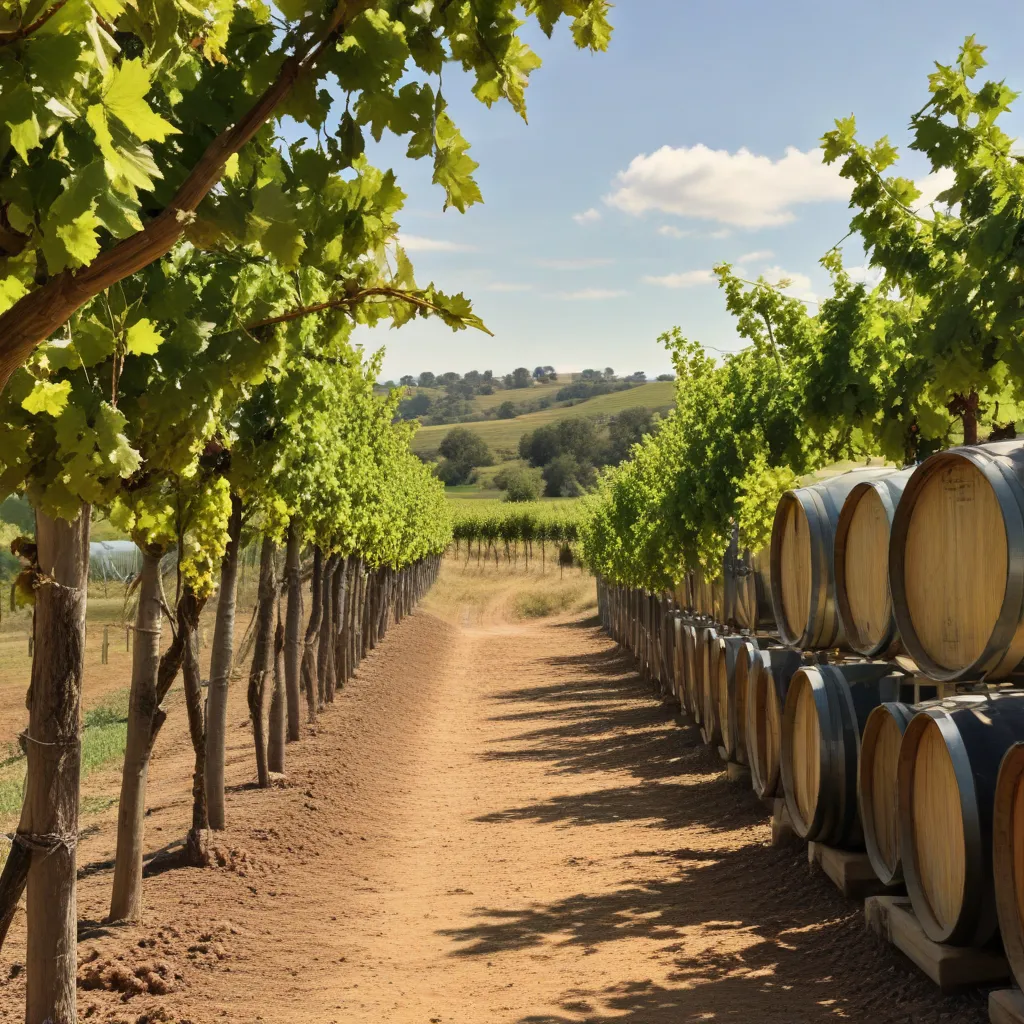
As a hospitality and wine expert, I’m excited to share how the wine industry is leading the charge in sustainable practices, with a particular focus on the utilization of renewable energy sources. In an era where environmental consciousness is paramount, wineries around the world are adopting innovative strategies to reduce their carbon footprint and contribute to a greener future.
Renewable Energy Sources: Powering the Future of Winemaking
At the heart of sustainable winemaking lies the embrace of renewable energy. Wineries are increasingly turning to solar power, wind power, and even hydroelectric power to meet their energy demands, reducing their reliance on traditional fossil fuels.
Solar Power: Harnessing the Sun’s Energy
Solar power has emerged as a game-changer in the wine industry. By installing photovoltaic panels across their properties, wineries are able to generate clean, renewable electricity to power their operations. This includes powering everything from lighting and refrigeration to irrigation systems and barrel rooms. The transition to solar energy not only reduces greenhouse gas emissions but also provides long-term cost savings, making it a wise investment for the future.
Wind Power: Capturing the Breeze
In regions with consistent wind patterns, wineries are leveraging the power of the breeze to generate electricity. Wind turbines, strategically placed on winery land or nearby, harness the kinetic energy of the wind and convert it into electrical power. This renewable energy source operates without the need for fossil fuels, making it a truly sustainable solution for winemakers.
Hydroelectric Power: Harnessing the Flow
Some wineries, situated near rivers or streams, are taking advantage of hydroelectric power. By installing micro-hydroelectric generators, they can capture the energy of flowing water and transform it into electricity to meet their energy needs. This method of renewable energy production is particularly well-suited for wineries located in areas with abundant water resources.
Sustainable Vineyard Management: Preserving the Land
Sustainable winemaking extends far beyond the winery walls, reaching deep into the vineyards themselves. Wineries are embracing eco-friendly organic farming techniques and biodynamic viticulture to nurture their vines and the surrounding ecosystem.
Organic Farming Techniques
Organic farming practices eschew the use of synthetic pesticides, herbicides, and fertilizers, instead relying on natural alternatives to maintain soil health and vine vigor. This approach not only reduces the environmental impact but also allows the grapes to better express the unique terroir of the vineyard.
Biodynamic Viticulture
Taking organic farming a step further, biodynamic viticulture views the vineyard as a self-sustaining, interconnected ecosystem. By applying specialized preparations and considering the rhythms of the cosmos, biodynamic vintners strive to create a balanced, thriving environment for their vines. This holistic approach to vineyard management helps to enhance biodiversity and promote long-term soil fertility.
Water Conservation Strategies
Water management is a critical aspect of sustainable winemaking, and wineries are implementing various strategies to conserve this precious resource. From drip irrigation systems to the use of cover crops and precision farming techniques, wineries are minimizing water usage and ensuring the long-term health of their vineyards.
Environmental Impact Reduction: Preserving the Planet
Sustainable winemaking also focuses on reducing the overall environmental impact of wine production, from waste management to carbon footprint mitigation.
Waste Management Initiatives
Wineries are exploring innovative ways to minimize waste and repurpose byproducts. This includes initiatives like composting vineyard cuttings and grape pomace, recycling glass bottles, and implementing water treatment systems to reuse wastewater for irrigation.
Carbon Footprint Mitigation
By embracing renewable energy sources, optimizing transportation logistics, and adopting energy-efficient winemaking processes, wineries are working to reduce their carbon footprint. Some wineries are even exploring the use of biochar, a charcoal-like substance, to sequester carbon and improve soil health.
Ecosystem Preservation
Sustainable winemakers recognize the importance of preserving the natural ecosystems surrounding their vineyards. Through the implementation of wildlife corridors, the creation of pollinator-friendly habitats, and the protection of riparian zones, wineries are ensuring the wellbeing of local flora and fauna.
Technological Innovations: Streamlining Sustainability
The wine industry is harnessing the power of technology to enhance the sustainability of their operations. From renewable energy-powered equipment to smart vineyard monitoring systems, these innovations are revolutionizing the way wineries approach sustainable winemaking.
Renewable Energy-Powered Equipment
Wineries are investing in equipment that is powered by renewable energy sources, such as solar-powered irrigation pumps and electric grape crushers. By eliminating the need for fossil fuel-powered machinery, wineries are further reducing their environmental impact.
Energy-Efficient Winemaking Processes
Advancements in winemaking technology have led to the development of energy-efficient processes, from gravity-flow fermentation to passive cooling systems for barrel rooms. These innovations help wineries minimize their energy consumption and carbon footprint throughout the winemaking journey.
Smart Vineyard Monitoring Systems
Cutting-edge technology is also transforming how wineries manage their vineyards. Precision farming tools, such as soil moisture sensors and drone-based aerial imaging, provide valuable data that allows vintners to make informed decisions about irrigation, pest management, and overall vineyard health.
As we raise a glass to the future of winemaking, it’s clear that sustainable practices and the embrace of renewable energy sources are paving the way for a more eco-friendly and resilient industry. By adopting these innovative strategies, wineries across the globe are not only producing exceptional wines but also contributing to the preservation of our planet. Check out Wine Garden Inn to explore more insights into the world of sustainable winemaking and discover how you can be a part of this journey.
